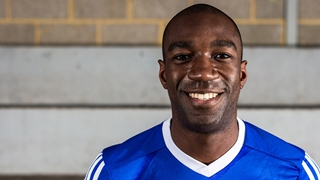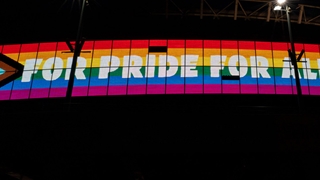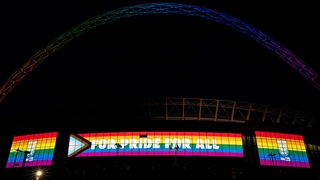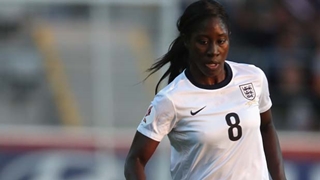
Anita Asante believes the younger generation of football players and fans can help shape a better future for LGBT+ participants in the game.
The Chelsea player and former England international was speaking on a special ‘Pride Inside’ panel during Pride Month 2020, to discuss LGBT+ issues in the game.
And while acknowledging that things are different for the younger players coming through in the women’s game today to when she was a young player with Arsenal Ladies, Asante believes the women’s game still has work to do.
"When I started in football, as an amateur, it was kind of taboo - you're a gay woman in football, that was the stereotype anyway,” she said.
"So for those girls who participated at the time, that [football] was a home for them because it was the taboo associated with the sport anyway.
"But now, as the game's getting more professional, we're starting to see a shift.
"Yes, it's always been considered more inclusive but with the visibility and interest that comes from commercial sponsorship, TV and media, you see that some girls are more self aware about their image, personality and persona and the limitations that come with that because of negative stereotyping related to LGBTQ+.
“I've seen that transition happen and we need to find a way to educate, have these discussions openly and start with the youngsters coming in because ultimately they will lead the change for the future of the game.”
Asante was joined on the panel by QPR technical director Chris Ramsey, journalist Nicky Bandini, Stonewall’s director of sport Robbie de Santos and Stonewall FC player Jehmeil Lemonius, with the BBC’s Ben Hunte chairing the discussion.
There was a broad range of topics discussed, and even though women’s football has been traditionally inclusive, Asante wants to see more being done in this area.
"I think it’s happening more and more now, but because it's been so normalised and accepted within the women's game, we can't forget that we've still got work to do regardless,” she added.
"We're trying to lead by example, but it doesn't mean there aren't pockets where there are girls who still feel insecure to come out and be themselves in these spaces.
"I do think youngsters are more open and responsive and we're seeing that kind of activism coming from youngsters.”
Watch the full event below.









